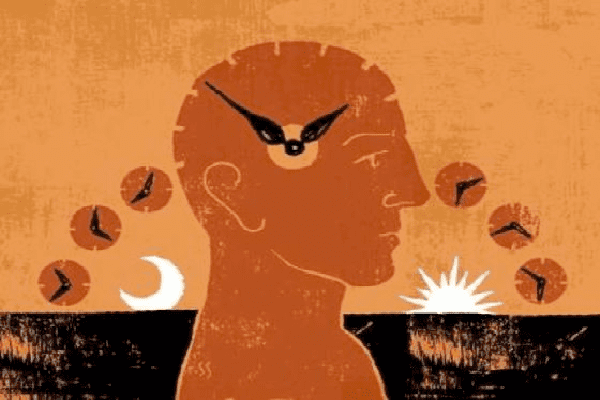Interesting >>>> Daytime sleepiness - biorhythms are to blame
Daytime sleepiness - biorhythms are to blame.

Chronobiology has long been studying the dependences of the state of the body over the course of the day and can already answer the question: "Why does a person experience a surge of strength in the morning and loss of strength by the middle of the day, daytime sleepiness".
We are all “children of the sun”: we activate with its first rays and fall into a “sleep mode” with the extinction of sunlight. Quite naturally, the question arises as to why at the peak of daylight hours (by noon) a person begins to feel a decrease in brain activity and feel the desire to take a nap.
Daytime sleepiness provide biorhythms. Regardless of whether it is daylight hours or night falls, there are still individual characteristics of the body that regulate our activity during daylight hours. This is due to hormonal metabolism (the level of cortisol and melatonin in the blood), which are responsible for our activity and sleepiness. So in "owls" (active in the evening) and in "larks" (active in the morning), the intensity of the release of these hormones is polarly different, and another chronotype - "pigeons", can remain active at the peak of daylight hours - at noon, when the other two chronotypes there is a slight decrease in the physiological activity of the body (the levels of cortisol are reduced for various reasons: in the "owl" the hormone is not yet in full concentration in the blood, and in the "larks", it is already beginning to fall, giving way to melatonin, in order to smoothly prepare the body for sleep at night).
A well-developed sleep and wake schedule forces a person to forcibly (by the hour, and not by light intensity) to rest and work, and this schedule (day regimen) may not coincide with the duration of the natural light and dark period. This is due to the seasonal change in the duration of daylight hours and the invariability of morning rises and going to bed.
A person forces his body to stay awake and sleep not according to the degree of intensity of sunlight, but because of vital necessity. And the hormonal background "gratefully" responds to it in return - failures in the system of full-fledged healthy, deep sleep (insomnia) and failures of full-fledged daytime activity (daytime sleepiness).
Such violations of the circadian rhythm in animals are not observed if they are not woken up regularly at night and their nervous system is not disturbed. But a person encourages himself to be active with various energetics and volitional efforts, which contributes to the individual development of various disorders of higher nervous activity, which dictates how long we will be awake, and what time interval we need for sleep.
Interesting observations were made by scientists at the beginning of the 21st millennium. It turned out that not only the endocrine and nervous systems subject us to a certain mode of life, but the digestive system also participates in the general task of maintaining light activity and nightly relaxation of the body. So the transfer of the intensity of nutrition to the night period violates the entire internal circadian rhythm of the body and contributes to the development of physiological disorders of all other functional systems. Our vision is an indicator of the presence of light, and it is this indicator that signals the body to activate and provide food intake - energy reserves. But the transition to night food introduces an imbalance - it dictates the relaxed body to activate the digestion processes at a time when vision speaks of the opposite process. It turned out that in such a simple way, Our metabolism is directly dependent on sleep and wakefulness, and vice versa, our biological rhythms are subordinated to the processes of intracellular metabolism. Namely, the correct metabolic processes are the guarantee of health. Lovers of a nocturnal lifestyle and nocturnal snacks should be aware of this.
Given the fact that seasonal fluctuations in light activity are insurmountable, you should think about rebuilding your daily routine according to the seasons: to allow the body to sleep more during long nights, and to load it less physically and intellectually during short daylight hours. Thus, health and a supply of vitality are preserved, which are just as exhaustible as many useful resources of nature.

Read

Read



























